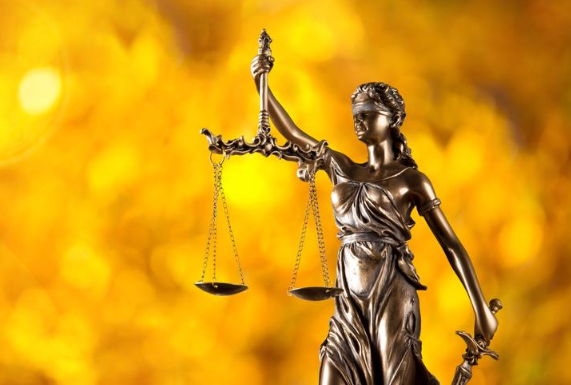How is Friar Laurence Prevented From Fulfilling the Law

In the heart of Verona, where love and conflict intertwine, one figure stands out as a beacon of hope amidst chaos: Friar Laurence. A priest with noble intentions, he becomes an unwitting catalyst in the tragic tale of Romeo and Juliet. But what happens when good intentions clash with rigid laws? The story reveals how even the wisest can be thwarted by circumstances beyond their control. As we delve into Friar Laurence’s journey, we’ll uncover the challenges that prevent him from fulfilling his duty to uphold the law while trying to bring peace between feuding families. Join us on this exploration of fate, choice, and responsibility in Shakespeare’s timeless drama.
The Role of the Church and the Law in Romeo and Juliet
In “Romeo and Juliet,” the Church holds significant influence over societal norms and legal matters. As a trusted figure, Friar Laurence embodies this connection between faith and law.
The Church’s authority dictates moral behavior in Verona. Its teachings impact relationships, marriage, and even conflict resolution. In an era where family honor often supersedes individual desires, religious tenets guide the characters’ choices.
Friar Laurence attempts to navigate this complex landscape of love and duty. He seeks to mend the rift between the Montagues and Capulets through his actions. However, he faces immense pressure from both familial expectations and church doctrine.
This duality creates tension throughout the narrative. The laws of Verona clash with personal beliefs, leading to tragic consequences that highlight how rigid structures can stifle genuine human emotion.
Friar Laurence’s Actions That Go Against the Law
Friar Laurence’s intentions often clash with the laws of Verona. His desire to help Romeo and Juliet drives him to take extreme measures that defy societal rules. For instance, he secretly marries the young lovers, hoping their union will end the feud between their families.
This clandestine act is a direct violation of both church regulations and civic law. The marriage lacks parental consent, undermining authority and tradition.
Moreover, his plan to provide Juliet with a sleeping potion raises eyebrows. This deception not only evades legal consequences but also places her life at risk.
By manipulating situations rather than adhering to established norms, Friar Laurence sets in motion a chain of events that spirals out of control. His actions illustrate how good intentions can lead one down a perilous path when they disregard the law entirely.
Factors That Prevent Friar Laurence from Fulfilling the Law
Friar Laurence is faced with numerous obstacles that hinder his ability to uphold the law. His deep compassion for Romeo and Juliet clouds his judgment. He believes love can conquer all, leading him to prioritize their happiness over legal obligations.
The feud between the Montagues and Capulets complicates matters further. The intense hatred between these families creates an environment where any attempt at mediation seems futile. This animosity limits Friar Laurence’s influence as a peacemaker.
Additionally, communication failures plague his attempts to execute plans legally. When he devises a secret strategy involving Juliet’s potion, he underestimates the potential for miscommunication in such dire circumstances.
His role within the church also presents challenges; while he seeks to offer guidance and support, the rigid structures of authority may restrict his actions in critical moments. Each factor builds upon another, creating a web of complexity that ultimately thwarts Friar Laurence’s intentions.
Consequences of Friar Laurence’s Decisions
Friar Laurence’s choices create a ripple effect that leads to tragedy. His decision to secretly marry Romeo and Juliet defies societal norms, setting the stage for chaos.
When he provides Juliet with the sleeping potion, it spirals out of control. This act not only misleads her family but also creates devastating misunderstandings among all involved.
As events unfold tragically, his well-intentioned plans contribute directly to the deaths of both young lovers. The consequences extend beyond their demise, impacting families and friends in Verona.
The feud between the Montagues and Capulets intensifies as grief turns into vengeance. In trying to navigate love and lawfulness simultaneously, Friar Laurence inadvertently fans the flames of hatred rather than extinguishing them.
His actions serve as a harsh reminder about the complexities of human emotion and governance within relationships a delicate balance often overshadowed by desperation and secrecy.
Lessons Learned from Friar Laurence’s Story
Friar Laurence’s journey is a poignant reminder of the consequences that arise from good intentions. His desire to unite Romeo and Juliet stems from hope, yet his actions spiral beyond control.
Trusting in fate can be a double-edged sword. The Friar believed that love could conquer all, but he underestimated the tension between feuding families and their impact on young hearts.
Communication plays a vital role in our decisions. Had Friar Laurence been more transparent with others about his plans, misunderstandings might have been avoided.
The story also highlights the importance of personal accountability. Each character’s choices contribute to the tragic outcome, underscoring that we must own our decisions.
It serves as a lesson about timing and patience. Rushing into solutions without careful thought can lead to irreversible consequences for ourselves and those around us.
Conclusion
Friar Laurence’s journey is a complex intertwining of good intentions and unfortunate circumstances. His commitment to peace between the Montagues and Capulets drives him to concoct plans that ultimately spiral out of control. The law, representing order in Verona, clashes with his desire to help the young lovers.
As events unfold, we see how external factors like misinformation and societal pressures play significant roles in thwarting Friar Laurence’s efforts. His inability to communicate effectively or foresee the consequences of his actions leads not only to personal tragedy but also broader chaos in Verona.
This tale serves as a poignant reminder of the delicate balance between duty and compassion. The question lingers: when faced with overwhelming obstacles, can even the wisest among us truly fulfill their intended purpose? Friar Laurence’s story illustrates that sometimes, despite our best efforts, fate has other plans.



